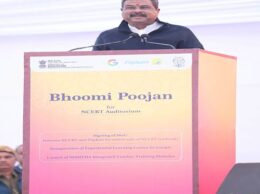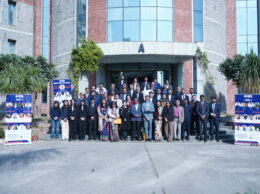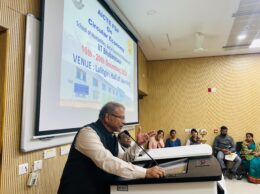In India, financial risk analysis has significantly advanced. Thanks to the combination of computing research and artificial intelligence (AI). Indian scholars and organizations have tapped into AI technology to improve risk assessment and management considering the nation’s expanding fintech industry and the growing significance of data-driven decision-making in finance. The efficient use of artificial intelligence (AI) models in a variety of financial risk-related areas can increase data processing speed, deepen data analysis, and lower labor costs, thus increasing the effectiveness of financial risk control.
Event-triggered computing, a novel computational model predicated on speed and nearly continuous scalability, is what powers these new capabilities. Artificial intelligence, another layer, is capable of learning from massive, erratic, and dynamic data sets. The study will also investigate practical uses for the new technology. Together, these layers will make proactive and real-time risk analysis possible, which could lead to important developments in market control, corporate practice, and regulatory policy.
SONNETS – Scalability Oriented Novel Networks of Event-Triggered Systems – brings together experts from Newcastle University, the University of Southampton (the overall project lead institution), and Imperial College London. Beginning in October 2023, SONNETS is scheduled. Engineering and Physical Sciences Research Council (EPSRC) in the UK will contribute £6.5 million to the £7.5 million initiative.
Professor Alex Yakovlev, Dr. Kabita Adhikari, and Dr. Rishad Shafik make up the Newcastle University team. Using event-triggered computing, the specialists will create machine learning systems on a nationwide scale.
Dr. Rishad Shafik, Newcastle University lead and Reader in Electronic Systems at the School of Engineering said, “Modelling risk for one bank is a difficult problem, and modeling the entire UK is much harder. Banks have complex, constantly changing portfolios, so building a picture of ‘who owns what’ means tracking millions of trades per day. Even if we have that picture, we still need to somehow assess risk, but that requires anticipating the future: we must pre-emptively identify potential scenarios, then estimate how much is lost in each scenario.”
He further added, “SONNETS will create a system that performs national-level risk analysis in real-time, by building a ‘digital twin’ of the UK’s financial system and using it to continually generate plausible future scenarios and assess their risk. We then use low-complexity artificial intelligence inspired by Tsetlin machines to learn what risky scenarios look like. We have international leadership in this area.”
Pioneering Research
Newcastle University School of Engineering Professor Alex Yakovlev, who specializes in computer system design, continued, “Newcastle is worldwide renowned for cutting-edge research in asynchronous and low-power machine learning employing the concepts of Tsetlin machine. For instance, the last two REF competitions, where we received 4* scores for our impact case studies, have validated our research’s brilliance in the area of asynchronous systems and their relevance to the financial sector. The one in REF 2014 had shown how the majority of transactions on the NYSE and NASDAQ depended on switch silicon technology developed by industry top vendor Intel Corporation using our asynchronous design methodology and tools based on Petri nets. Then, in REF 2021, we showed off our Workcraft design tools that were applied to extend battery life and boost reliability in hundreds of billions of consumer electronics devices, including mobile phones and internet-of-things devices.”
He continued, “Now, combining our knowledge and understanding of the principles of Mikhail Tsetlin’s learning automata, developed in the USSR in the 1960s, with our expertise in designing low-power logic circuits, we are in a strong position to develop super energy efficient technology for highly distributed, event-triggered, and naturally interpretable machine learning computational platforms for future super-complex data analysis.”









